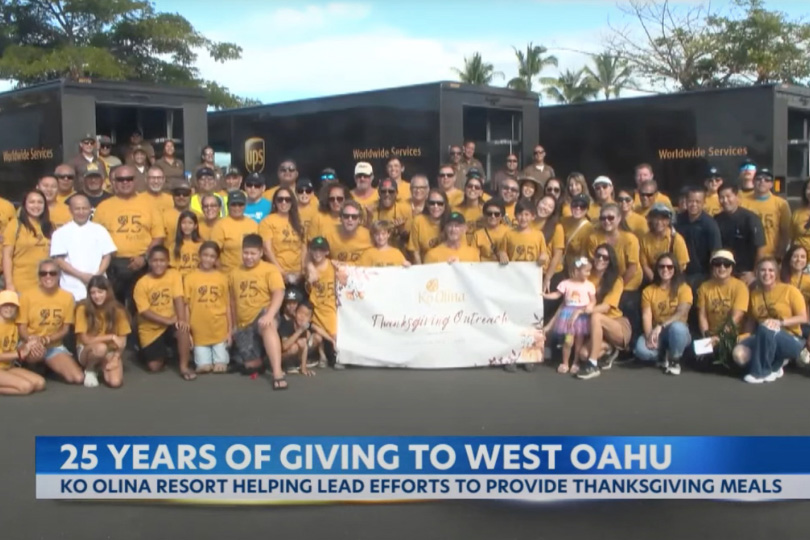Hawaii Companies Show Sustainability is a Smart Business Strategy
This article is more than 8 years old.
The pace at which sustainability has been adopted as a sound business imperative is impressive. A few years ago, most companies would have put it in a silo, where a small portion of profits would be dedicated to "greening" along with other community outreach. Today, many business leaders discuss sustainability as an essential part of the company, with terms such as payback periods, rising utility costs, meeting customer demand as well as being a good corporate citizen.
Ko Olina Resort and Marina
Ko Olina says it has worked hard to incorporate sustainability and community outreach across its many resident companies, which include Disney's Aulani, Marriott's Ko Olina Beach Club, residences, restaurants and a golf course.
For Ko Olina, sustainability may be more important as a good neighbor policy than a way to connect with customers or cut costs. With its proximity to the Waianae Coast and the rest of Leeward Oahu, it has crafted policies friendly to the local community. These include sourcing local food, art and other products. A program called, "The Spirit of Ko Olina: How to Give Back" sponsors local nonprofits, including MAO Organic Farms' social-entrepreneurship programs, Makaha Studios, Waianae High School's Searider Productions, the Native Hawaiian Traditional Healing Center, the Waianae Coast Comprehensive Health Center, the Junior Lifeguard Program and the Kalaeloa Heritage & Legacy Foundation.
Sustainability is evident throughout the Ko Olina grounds. Ko Olina says all businesses at the resort agreed voluntarily to phase out plastic bags; LED light bulbs are used in all street lighting; resort staff and security use electric vehicles; and only nonpotable water is used to irrigate the golf course and resort areas. In the near future, says Leilei Shih, environmental director of Ko Olina Resort & Marina, the resort is planning a service where guests can rent electric and hybrid cars by the hour, LEED building developments and increasing its solar PV installations.
Ko Olina has a powerful reason to support efforts such as waste reduction and green-waste reduction: In 2011, the nearby Waimanalo Gulch landfill overflowed, and medical waste and other debris washed up on the Ko Olina beaches. Shih says the people who work at Ko Olina share the commitment to sustainability.
"Sustainable living is a way of life for the Ko Olina community and its guests," she says. "All of the employees I've talked to are very excited about the current and future sustainability initiatives. I often have employees sharing ideas about how to become even more sustainable."


